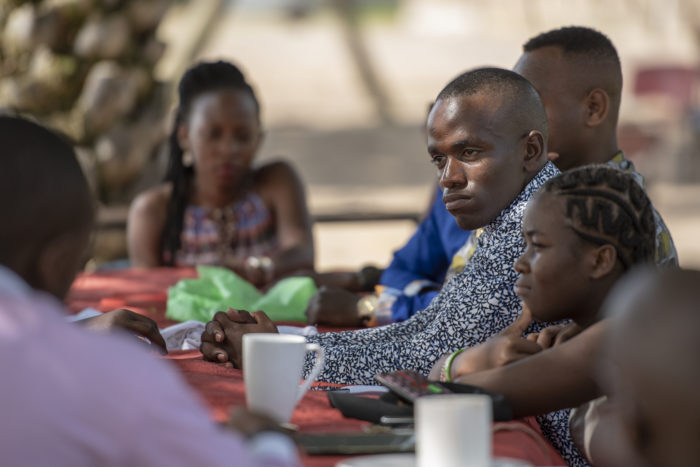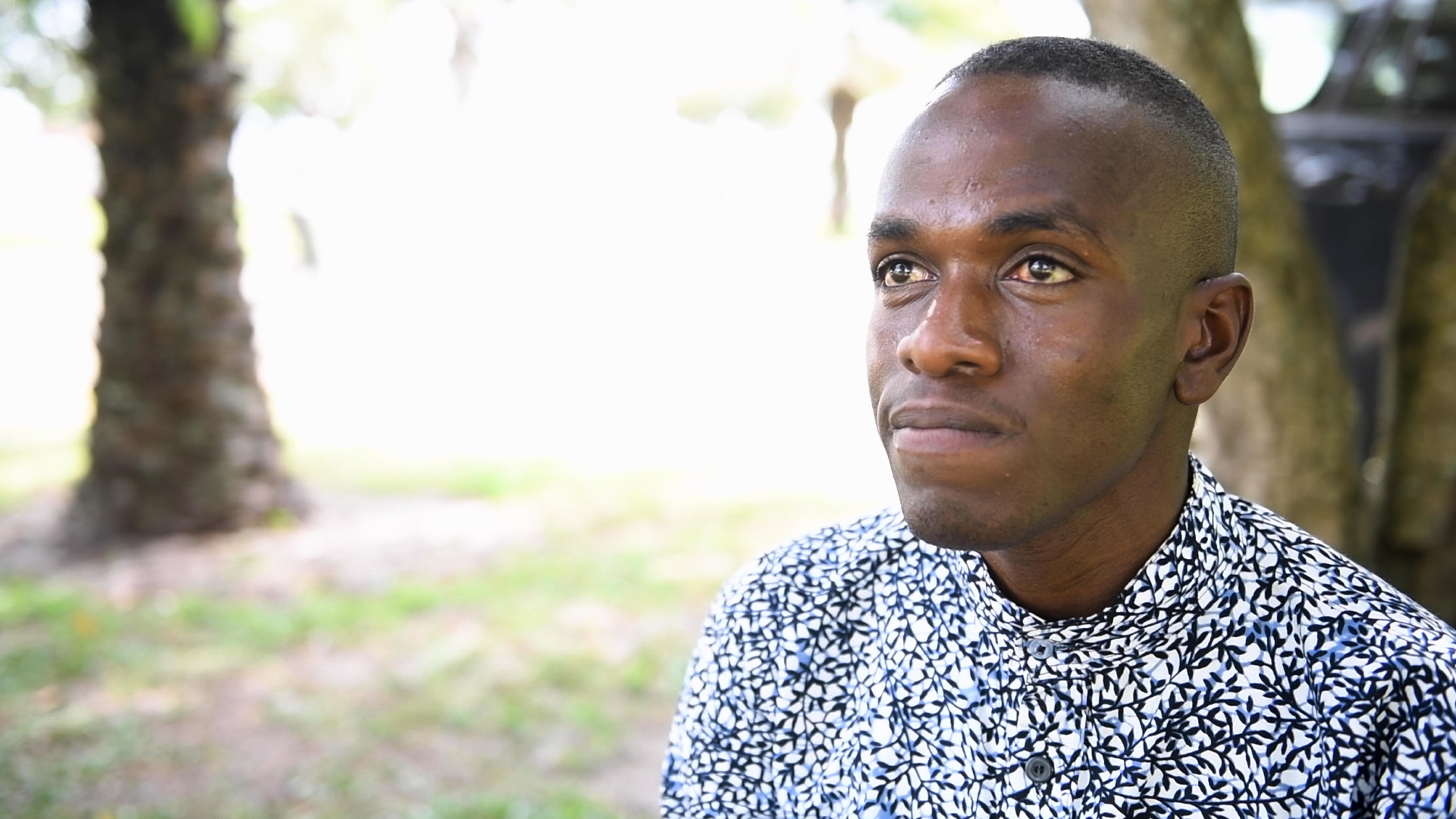Grant Angabiire is a 23-year-old up-and-coming wildlife tour guide/hotelier in Uganda. Today, he devotes much of his energy to sensitizing others about HIV. But as an orphan growing up with HIV, Grant was burdened by his HIV-status and the associated stigma. Until recently, he was afraid to disclose his HIV status outside of his circle of HIV-positive peers.
Grant ’s parents died of AIDS-related causes when he was only 2 years old. Then Grant began to show symptoms of AIDS: “I had some sores on my head and then eventually on every part of my body. “My grandmother thought that I was about to follow my parents,” says Grant. “She said, ‘Oh, our child is about to leave us.’”
In 2004, Grant was tested for HIV and placed on treatment. Fortunately, by that time, antiretroviral medication was available—however, it was expensive. Although money was tight, Grant’s grandmother managed to pay for his medication and enroll him in school. Still, the scars remained.
“I was being humiliated at school. Some students were refusing to sit with me because of the sores on my arms,” says Grant. “I came to hate myself.”
“I always asked my grandmother, ‘why is it that I am taking some medicines every day and every night,’” says Grant. But his grandmother refused to tell him—until, finally, when Grant was 11, she disclosed his HIV-status to him: “Then she said the truth … that I have the same disease that took my parents.”
“When I heard that story, I was very much tortured,” says Grant. “In my heart, I was feeling so much hatred to be alive. Why did my parents do this to me? I hated myself to the extent of taking [a drug overdose] to kill myself,”
 Grant survived the suicide attempt. Thereafter, he decided to face the reality of his HIV status: “I accepted that I am HIV-positive. There is nothing else I can do. Now I started taking care of my life.” Although Grant continued to face discrimination at school, he focused on his health, taking his medication religiously.
Grant survived the suicide attempt. Thereafter, he decided to face the reality of his HIV status: “I accepted that I am HIV-positive. There is nothing else I can do. Now I started taking care of my life.” Although Grant continued to face discrimination at school, he focused on his health, taking his medication religiously.
After graduation, Grant faced a new challenge—stigma in the workplace. To train for work in tourism, Grant worked as a waiter in a hotel. His uniform had short sleeves—which made Grant self-conscious because of scars and spots on his arms. He was also self-conscious about having to duck back to his room during the day to take his medication. Because of his assigned duties, he did not have permission to go to his room and take his medicine when he needed to. He worried that people would discover his HIV-positive status.
Grant’s fears turned into a nightmare when a colleague began hounding him about his scars and began following him around the hotel. Grant feared that his co-workers would shun him and that he would lose his training position. Eventually, he finished the training and left the hotel.
Now, as an up-and-coming wildlife tour guide, Grant wonders if he should be disclosing his HIV status to his clients or when he interviews of jobs. Fortunately, he has close friends who understand his situation and can give him advice.
Grant is a member of the Ariel Superstars, a group of HIV-positive young adults in Uganda who have aged out of Ariel clubs—child and adolescent psychosocial support groups sponsored by the Elizabeth Glaser Pediatric AIDS Foundation (EGPAF). Ariel clubs provide a place of solidarity, education, and safety for children living with HIV. They make friends with peers and gain self-acceptance and confidence.
Now a generation of HIV-positive adults who grew up together in Ariel Clubs is keeping in touch through social media, primarily What’s App, and in person, like on World AIDS Day (December 1).
Josephine Nabukenya and Brian Ahimbisibwe—EGPAF ambassadors who started the Ariel Superstars—emphasize to Grant that HIV disclosure is always a choice: “You need to ask yourself, ‘Who are you disclosing to? Do they really need to know? What are you going to say to them? And are you prepared to accept the outcome?’” says Josephine.
“The Ariel Superstars What’s App group surely has impacted me and strengthened my friendships,” says Grant. “The other Superstars keep on empowering us, aiming at ending stigma and discrimination.”
Grant’s experience illustrates just how important support groups are to people living with HIV. At the most recent gathering of the Superstars, the group was able to announce that every member has achieved viral suppression—meaning that HIV is undetectable in their blood samples. While there is still no cure for HIV, the Ariel Superstars are showing that HIV does not have to be a hindrance to health or to opportunities.
“Surely I am finally proud to be HIV-positive,” says Grant on World AIDS Day. “This is our day. To Uganda, I say, ‘We stand firm. Let’s confront AIDS, HIV—and stigma as well. At this time no one should die of AIDS.
“Let’s all live a free life.”




